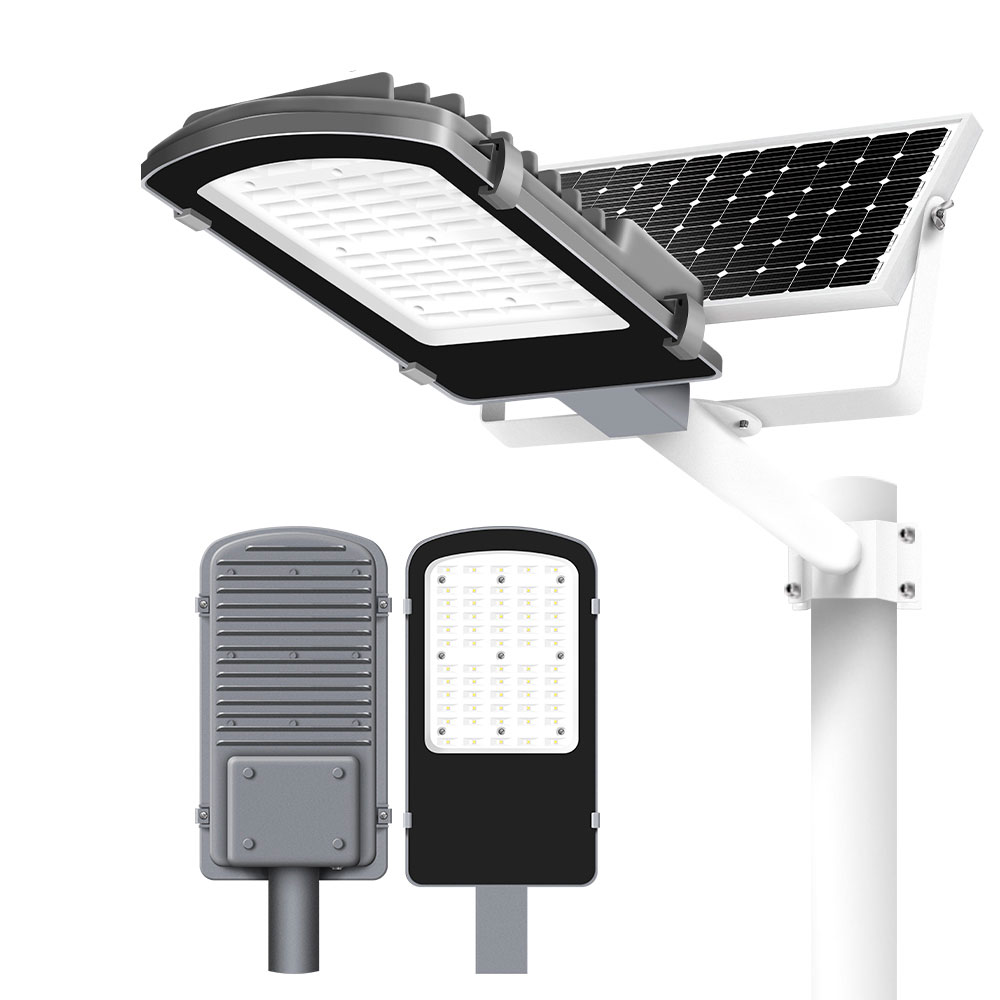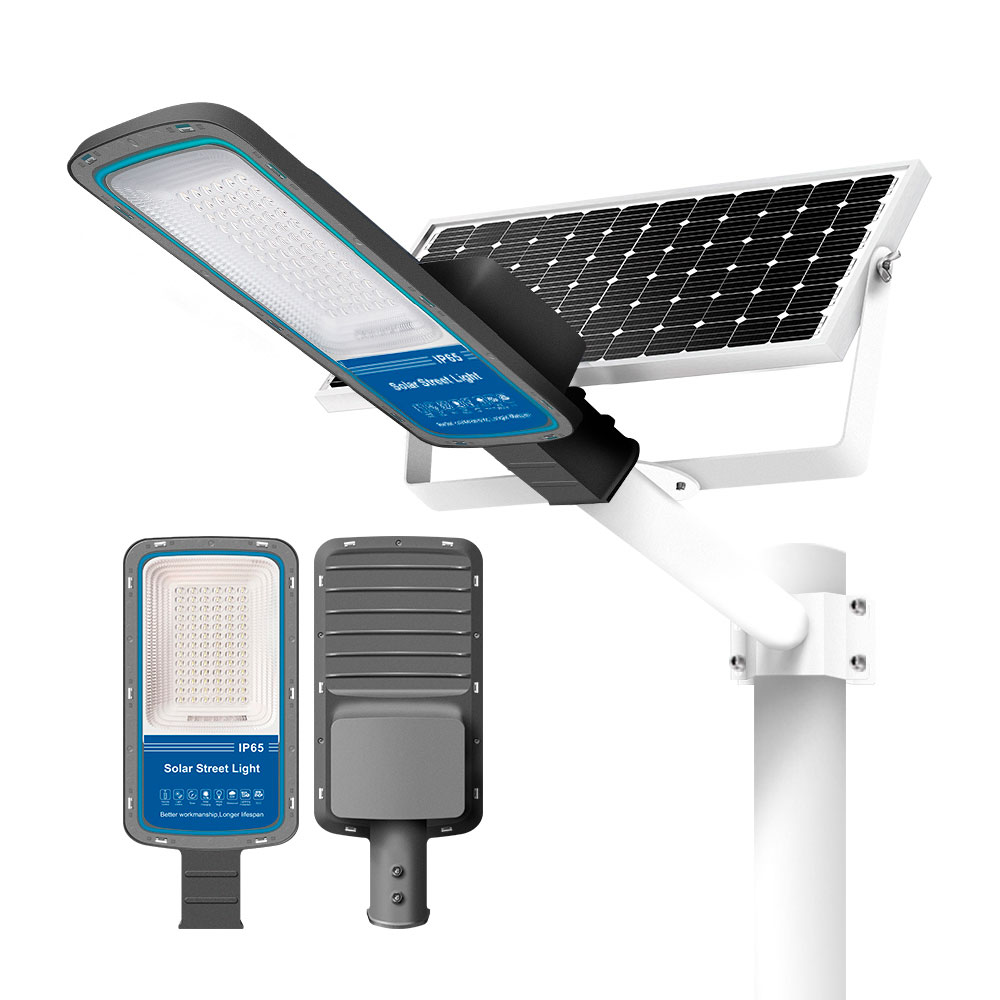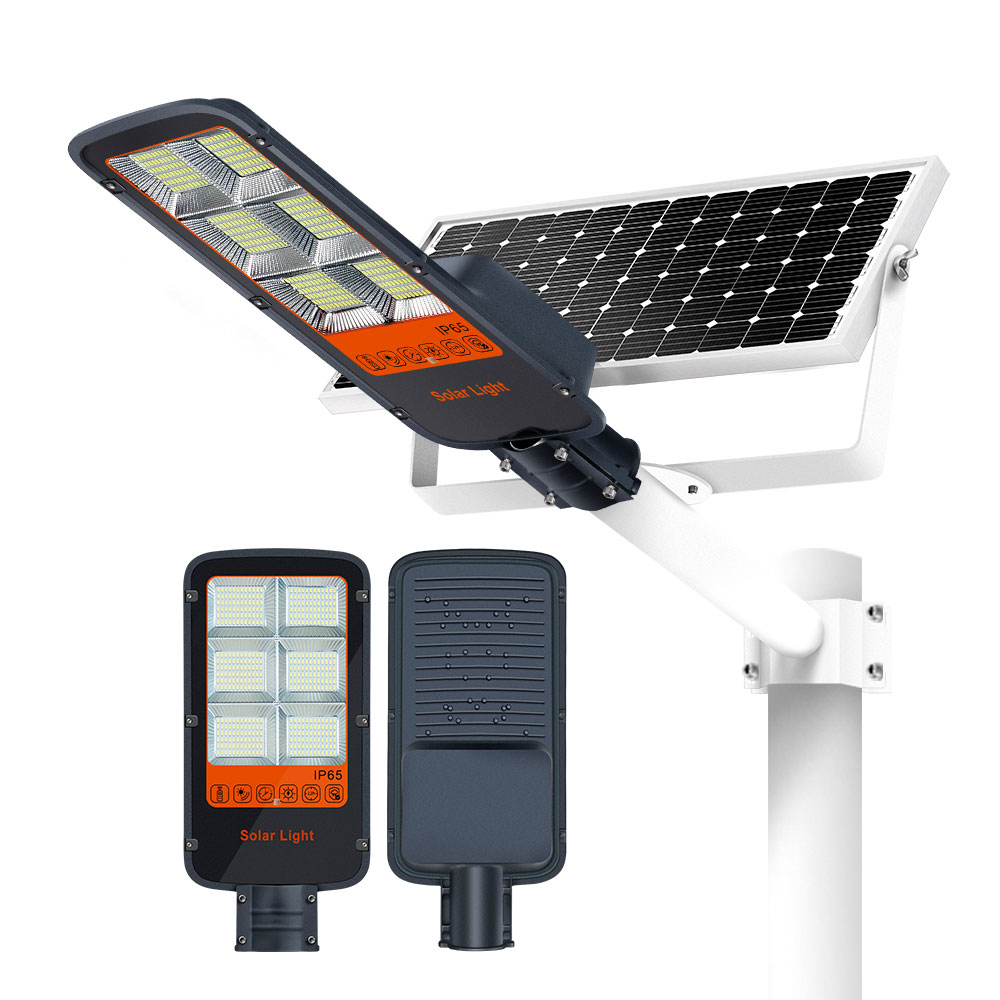All In Two Solar Street Light
-
Advantages of All-in-Two Solar Street Lights Compared to Others:
- Detachable Lamp Head for Easy Maintenance: The separate lamp head allows for quicker servicing, replacement, or upgrades without affecting the entire solar system.
- Adjustable Lighting Direction: Unlike fixed all-in-one lights, the lamp head can be adjusted independently for better lighting angles based on site needs.
- Optimized Heat Dissipation: With separate components, heat from the LED and battery is dissipated more efficiently, extending product lifespan.
- Higher Configuration Flexibility: Easier to scale up with larger solar panels or batteries compared to all-in-one systems, making them suitable for higher-wattage or longer runtime needs.
- Better Performance in Shaded or Complex Terrains: The ability to install the solar panel in a sunnier location and the lamp head in a shaded or specific direction enhances efficiency and adaptability.
- Improved Aesthetics and Integration: Sleeker lamp designs integrate well into modern urban, residential, or scenic landscapes without compromising performance.
-
FAQs you want to know about all-in-two solar powered street lights
- What is an all-in-two solar powered street light, and how does it differ from all-in-one or all-in-two models?
- All-in-two solar powered street lights separate the solar panel and lamp head into two parts, allowing independent orientation. Unlike all-in-one models (compact, fixed design), all-in-two combines flexibility and streamlined structure.
- Can the solar panel and LED lamp be installed in different directions?
- All in two solar street lights refer to a design where the entire system includes two main parts: an integrated lamp head (lamp body with LED lights and solar controller and lithium battery) and a separate solar panel.
- How easy is it to install compared to traditional or all-in-one models?
- Simpler than split systems and more flexible than all-in-one. No trenching or wiring needed. Mounting brackets make assembly straightforward.
- Can I choose the lamp head angle and solar panel orientation separately?
- Yes. This flexibility ensures optimal sunlight capture and tailored lighting direction.
- What is the ideal height for installing an all-in-two solar powered street light?
- Typically 4 to 9 meters, depending on wattage and application.
- What kind of battery is used (e.g., LiFePO₄), and how long is the life cycle?
- LiFePO₄ batteries are standard, offering 2000+ charge/discharge cycles (5-8 years lifespan).
- What is all in two solar street lights?
- All in two solar street lights refer to a design where the entire system includes two main parts: an integrated lamp head (lamp body with LED lights and solar controller and lithium battery) and a separate solar panel.
- How To Choose Between All-in-One and All-in-Two Solar Street Lights?
- The choice between all-in-one and all-in-two solar street lights typically depends on the specific requirements of your project. For smaller applications, such as a single road or village road, an all-in-one system is usually sufficient. However, for more demanding environments like driving roads or high-speed roads, an all-in-two system might be the better option.
- How long does it take for the battery to be fully charged?
- It takes 5-6 hours for the battery to be fully charged under direct sunlight.
- Can your lights be installed seaside while being protected from rust and corrosion?
- Yes, our lamp housing material is made of die-cast aluminum, ensuring resistance to both rust and corrosion.







